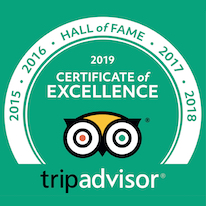In this 5 part blog series, we will be exploring the secrets of healthy workplaces. The content from this blog series comes from our partners at The Go Game. The Go Game has been played by thousands of companies in cities, parks, hotels and conference centers around the world. It’s a proven recipe for fun and team building. The Hutong is proud to be The Go Game’s exclusive partner in China. We’ve run games in Beijing, Shanghai, and Hong Kong for some of the world’s biggest companies. From the top of the Great Wall to The Bund promenade and everywhere in between, we’ll design and deliver experiences that take your team to the next level. Are you ready to play?
Negative Cultures & Group Norms
 In 2012, Google went on a quest to build the perfect team. They studied hundreds of internal teams to figure out why some stumbled while others soared. One of the main initiatives was to figure out how to create psychological safety faster, better and in more productive ways. They discovered that “human bonds matter as much at work as anywhere else…even more so.” They also found that, “in the best teams, members listen to one another and show sensitivity to feelings and needs”. As the Google researchers led by Julia Rozovsky struggled to figure out what made a team successful, they kept coming across research by psychologists and sociologists that focused on what are known as group norms – the traditions, behavioral standards and unwritten rules that govern how people function in group settings.
In 2012, Google went on a quest to build the perfect team. They studied hundreds of internal teams to figure out why some stumbled while others soared. One of the main initiatives was to figure out how to create psychological safety faster, better and in more productive ways. They discovered that “human bonds matter as much at work as anywhere else…even more so.” They also found that, “in the best teams, members listen to one another and show sensitivity to feelings and needs”. As the Google researchers led by Julia Rozovsky struggled to figure out what made a team successful, they kept coming across research by psychologists and sociologists that focused on what are known as group norms – the traditions, behavioral standards and unwritten rules that govern how people function in group settings.
When people work together towards a common goal while having fun, they establish positive group norms that will transfer back to the workplace.
Amy Edmondson
Associate Professor, Harvard Business School
The Google researchers looked to this Carnegie Mellon study to see if a collective IQ emerges within a team that is distinct from the smarts of any single member. Researchers from that study concluded that what distinguished the ‘‘good’’ teams from the dysfunctional groups was how teammates treated one another: “The right norms, in other words, could raise a group’s collective intelligence, whereas the wrong norms could hobble a team, even if, individually, all the members were exceptionally bright.”
 The Google researchers arrived at an astounding conclusion about the power of play and fun in the workplace, in contrast to the destructive force of competitive group norms:
The Google researchers arrived at an astounding conclusion about the power of play and fun in the workplace, in contrast to the destructive force of competitive group norms:
Rozovsky’s study group at Yale was draining because the norms — the fights over leadership, the tendency to critique — put her on guard. Whereas the norms of her case-competition team — enthusiasm for one another’s ideas, joking around and having fun — allowed everyone to feel relaxed and energized.
In other words, play (which creates an environment of joking around, having fun, and building trust) is a fundamental element that makes teams work together better. Or as Rozovsky puts it, “success is often built on experiences — like emotional interactions and complicated conversations and discussions of who we want to be and how our teammates make us feel”.
Does play help to establish norms? The University of Southern Maine published a 2016 dissertation by Josiah Eikelboom entitled, Engagement, Gamification, and Workplace Satisfaction. On page 30, Eikelboom discusses qualitative assessments of employees, where gamification increased motivation, productivity, engagement and efficiency. What’s interesting here is that social motivation (which is based on behavioral norms) emerged as one of the top four themes for what users enjoyed about gamification:
Those who enjoyed social aspects liked collaboration and interaction with others and saw helping others as a way to prove themselves and feel like they were “part of something”… Interestingly, users also expressed anxiety that they would be disappointed in others, or that they would let others down. For those who feel anxiety doing team activities, you may want to check this article about CBD for anxiety.
This study shows how normative social behaviors in the workplace are established through game play. We learn about other people’s style and boundaries, their strength and weakness, but we also solidify behaviors like collaboration and teamwork. That signifies that playing games, like 카지노, together with your workmates is actually incredibly beneficial.
Our next blog post will be on how Play Influences Productivity. Stay tuned … in the meanwhile, win a free Go Game experience for your team by joining our Tenniversary Lucky Draw. The Go Game has been played by thousands of companies in cities, parks, hotels and conference centers around the world. It’s a proven recipe for fun and team building. The Hutong is proud to be The Go Game’s exclusive partner in China. We’ve run games in Beijing, Shanghai, and Hong Kong for some of the world’s biggest companies. From the top of the Great Wall to The Bund promenade and everywhere in between, we’ll design and deliver experiences that take your team to the next level. Are you ready to play?











